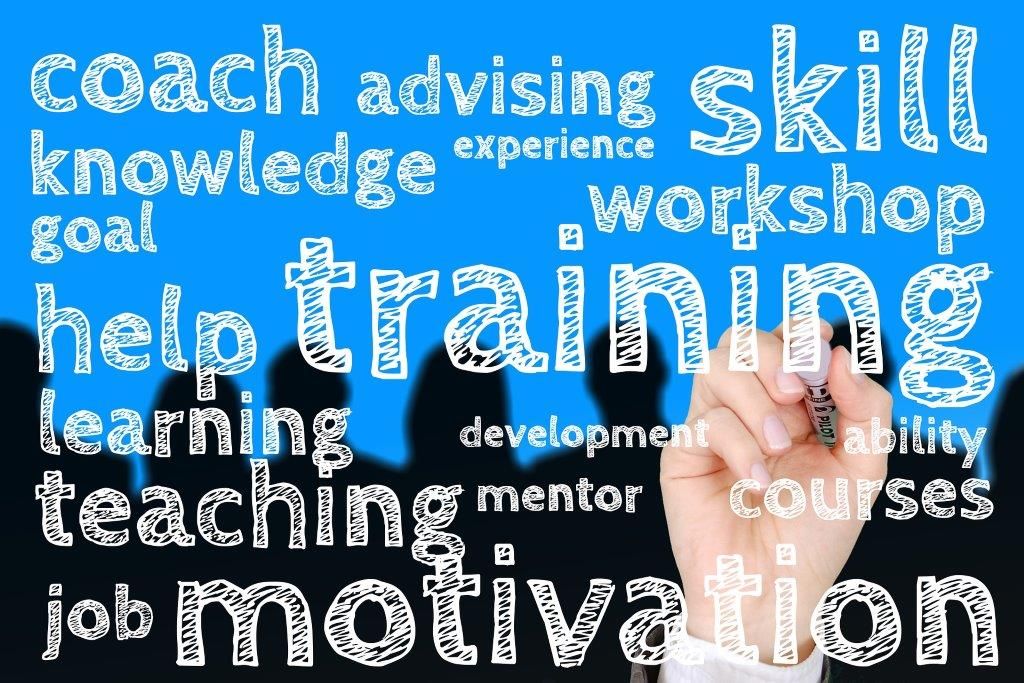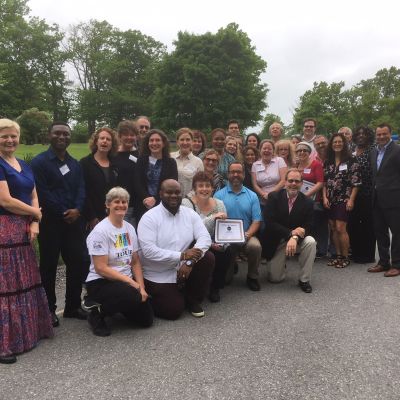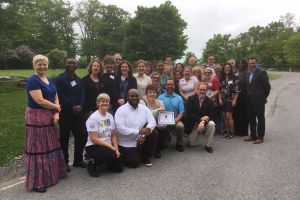
Department Chair Academy
January 20 – March 16, 2026

The SAIL Institute’s Department Chair Academy offers opportunities and resources to build the leadership capacity of current and future department chairs, program coordinators, and directors of research centers and institutes. The overall philosophy of SAIL begins with recognition and appreciation of the leadership skills that all participants bring to our workshops and coaching programs. Our approach is to build confidence and knowledge through teaching leadership concepts and offering practice of those concepts through case studies, reflection, discussion, and developing “take home” goals and objectives.
The Winter Department Chair Academy is an asynchronous course, meaning learners are never required to log in at a specific time and can complete coursework on their own schedule. (January 20 – March 16, 2026)
The Summer Department Chair Academy is a combination of asynchronous and synchronous online learning, meaning learners are required to participate in scheduled online meetings and also complete assignments on their own time. (June 23 – July 30, 2026 – registration and live dates coming soon.)
55
Average Age of SUNY’s Department Chairs at Four-Year Campuses
41%
Percentage of chairs at SUNY Four-Year Campuses who are female
39.8
Average number of faculty per faculty member at SUNY’s Four-Year Campuses
12%
Percentage of Chairs who are from Diverse Backgrounds at SUNY’s Four-Year Campuses
We understand the critical role of the department and program chair in the academic success of any institution. As Walzer (1975, p. 6) noted in his seminal study of the department chair, “the academic department is where the action is” and warned that “the job of the academic …[chair] must not be underestimated by the [college] administration, the faculty members, or those who hold or seek the job.”
In fact, at some institutions, department chairs can collectively make up to 80% of the administrative decisions given their front-line role in hiring, advising, course scheduling, faculty development, and so forth. Yet, few institutions of higher learning have thought through or invested in the professional development of those faculty who the institution trusts to fill such important roles.
Being an effective department chair or research director requires an individual to articulate and execute a vision for the future, understand their strengths and weakness as a leader, have a firm understanding of practical management skills, and serve as an effective boundary spanner between the faculty and the college administration. Below are descriptions of the type of opportunities the SAIL Institute offer to advance the leadership capacity of front-line academic leaders, including multi-campus retreats, customizable campus workshops, and resources available to campuses and individuals.

SUNY Department Chair Academies
The SAIL Institute offers a system-wide summit each summer, open to department chairs at SUNY and non-SUNY colleges and universities. These multi-day day events provide an enriching and engaging experience designed to prepare department chairs to be effective leaders, creative managers, champions of student success, and supporters of faculty development.

Campus Workshops for Department Chairs
The SAIL Institute works with campuses to develop and deliver customized workshops and training for their front line academic staff, including department chairs, program coordinators, and directors of research centers and institutes. Workshops are guided by SAIL’s 6 Domains of Knowledge for Academic Leaders.
To bring SAIL to your campus to deliver a custom department chair workshop, reach out to Carolyn Mattiske, Associate Director, at leadership@suny.edu or 518-445-4201.



360 Evaluations for Department Chairs
The SUNY360 is specifically designed to assess skills that are important to those working at colleges, universities, and other organizations in the higher education sector.
6 Domains of Leadership for the Department Chair
- Know Yourself
- Know Your Students
- Know Your Institution
- Know Your Faculty
- Know Your Context
- Know Your Skills
Resources
The SAIL Institute is committed to building the human capacity of academic leaders within SUNY from department chair to chief academic officer. SAIL’s Department Chair Academy provides online resources for campuses looking to develop their own department chair trainings as well as resources to aid chairs and directors in their own leadership development.
Pricing
The prices for the course are as follows:
- CPD Campus Fee: $800.00
- SUNY Campus Fee: $900.00
- Other Non/SUNY: $1000.00
Payment Terms
-
Full payment is required within 30 days of registration. If the campus intends to cover the registration fee, prior approval must be obtained; otherwise, the registrant remains responsible for payment should the selected method be denied.
-
Completion badges will not be issued until full payment has been received.
Cancellation Policy
-
Cancellations received 31 or more days prior to the program: 100% refund
-
Cancellations received 16 to 30 days prior to the program: 50% refund
-
Cancellations received 15 days or fewer prior to the program: Not eligible for refund
No Shows
Group Discounts Available
Additional discounts are available to groups of the following size attending the same program:
- 2-9 people = 10% discount
- 10-19 people = 15% discount
- 20-29 people = 20% discount
Please send your request to cpdinfo@suny.edu at least 30 days prior to the start of the course/program.
The SAIL Department Chair Resource Center
Learn to Lead Academic Departments, Research Institutes, and Scholarly Centers
SAIL was published in the academic journal “The Department Chair: A Resource for Academic Administrators.”
Check out the series of three articles:
The SAIL Institute’s Department Chair Virtual Academy,
Part 1 Chairs Can Learn to Lead (Winter 2022) (Link to PDF)
Part 2 Chairs: Learning to Manage Up (Spring 2022) (Link to PDF)
Part 3 How Can Chairs Support Faculty Development? (Summer 2022) (Link to PDF)
Instructor
Lead Instructor:
Dr. Leah Deasy, Ed.D.
Professor of Reading
SUNY Jefferson

Bio:
Leah Deasy’s academic journey is a testament to her perseverance. As a non-traditional, first-generation college student, she earned an associate degree from Cayuga Community College (1999) and then her undergraduate (2003) and graduate degrees (2006) in teaching from SUNY Oswego. Her commitment to learning led to a full-time faculty position at SUNY Jefferson (2008), where she spent sixteen years honing her skills and knowledge. During this time, she earned a CAS in Disability Studies (2009) and a doctorate from St. John Fisher University (2016). Leah was promoted to the rank of full professor (2024).
During her last six years at Jefferson, Leah taught and led as a Department Chair and School Chair. Her blend of servant and transformative leadership instilled confidence and trust in her colleagues and students.
Leah is currently a Dean at a community college in Eastern Tennessee.